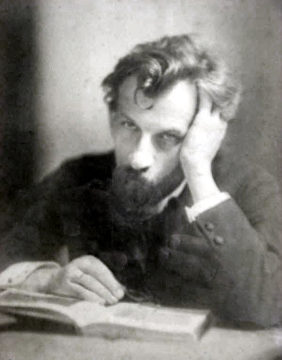Adam Kirsch at The New Criterion:
 When Hans Pfitzner’s opera Palestrina premiered in Munich in June 1917, it found an enthusiastic admirer in Thomas Mann. “Quickly I made this difficult and audacious production into my own, my intimate possession,” Mann said in Reflections of a Nonpolitical Man (1918), the nonfiction book he spent most of World War I writing. “Its appearance at this moment brought me the consolation and blessing of complete sympathy.” Before the year was out, he saw the opera performed five times.
When Hans Pfitzner’s opera Palestrina premiered in Munich in June 1917, it found an enthusiastic admirer in Thomas Mann. “Quickly I made this difficult and audacious production into my own, my intimate possession,” Mann said in Reflections of a Nonpolitical Man (1918), the nonfiction book he spent most of World War I writing. “Its appearance at this moment brought me the consolation and blessing of complete sympathy.” Before the year was out, he saw the opera performed five times.
Pfitzner continued to compose until his death in 1949 at the age of eighty, yet Palestrina is his only work widely known today. Part of the reason is that his reputation went into a deep eclipse after World War II—a backlash against his celebrity status in Nazi Germany, where he was one of the regime’s favored composers. It is only in recent years that many of his chamber, orchestral, and choral works have been recorded. None of them, however, seems likely to join Palestrina in the canon. Pfitzner’s magnum opus continues to repay listening and reflection today for the same reason that it fascinated Mann more than a century ago: its powerful expression of the pathos and the perils of conservative artistry in the modern world.
more here.
